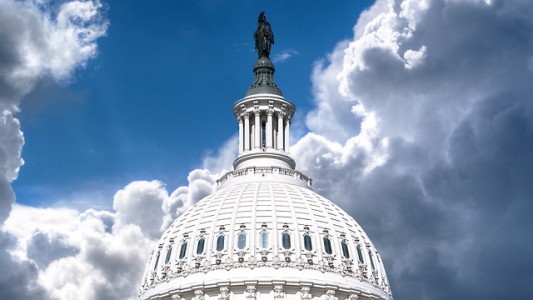Widgetized Section
Go to Admin » Appearance » Widgets » and move Gabfire Widget: Social into that MastheadOverlay zone
Can Representative Democracy Work for Millennials?
The views expressed are those of the author and do not necessarily reflect the views of ASPA as an organization.
By Tommy Engram
August 16, 2016
In Federalist Papers #10, James Madison recommended representative democracy as the great cure for what he considered to be the manifest evils of pure democracy. Up until the great American experiment, all previous governments based on popular rule had failed, usually in some especially convulsive fashion.
But Madison argued that the excesses committed under pure democracy, in the name of narrow self-interest, could be tamed. To do so, we could elect the best people to represent us and increase the turf of each representative to include a variety of interests. Perhaps it was a good idea in 1787. There were no political action committees, political parties, televisions or cell phones. We were a kinder and simpler polity.
Now, we might consider Madison’s first argument laughable. History provides ample evidence of the election of legions of thieves, fools and scoundrels at all levels of government. The reluctance with which both Democrats and Republicans view the upcoming presidential contest may be the best evidence that the cream does not always rise to the top. Likewise, expanding the scope of the interests within the representative’s district seems to do little more than expand the opportunities for influence peddling, a vice which has been recently legitimized by the U. S. Supreme Court in McDonnell v. United States.
But, these problems are not new and grand solutions for the problems of representative democracy are beyond the scope of this paper. It may be the best system of government for us in spite of some blatantly obvious shortcomings. Yet, the concept of representation assumes that voters will participate in the selection process that creates government’s legitimacy. How will that work for a generation of Americans that has demonstrated little interest in voting?
Demographers are fond of naming each successive generation and comparing it to its predecessors. My generation was the baby-boom generation. Up until recently, we were the pig in the python and everything in our culture has tended to conform to our whims for three reasons. First, there are a bunch of us. Second, we have unprecedented purchasing power. Third, we are staying in the workforce much longer than previous generations.
How does that compare to the new pig in the python? As with the boomers, there are a bunch of millennials. They may wind up with substantial purchasing power, but many are starting out under the burden of heavy student loan debt. They may stay in the workforce for a long period like the boomers, but they are entering it much later and their careers tend to be scattered across a series of relatively short-term employers. Both tendencies may result in greater reliance on public support in old age.
 More to the point, early data indicates that millennials do not vote at the same levels as earlier generations. They express great concern about ethics, a variety of public policies and their debt load. But, when Bernie Sanders promised to forgive their student loans, their self-interest fell short of the ballot box.
More to the point, early data indicates that millennials do not vote at the same levels as earlier generations. They express great concern about ethics, a variety of public policies and their debt load. But, when Bernie Sanders promised to forgive their student loans, their self-interest fell short of the ballot box.
If we cannot move the millennial to the polling place, perhaps technology can move the ballot box to the millennial. Most have access to abundant bandwidth and a variety of tools for twittering, pinning, liking and such seemingly frivolous activities. Since many, if not most, business interactions have been reduced to a stream of zeros and ones, why not the ballot? The presumption is that if the ballot is in a device of their choosing at a convenient time, it is much more likely that millennials will make their choice known.
Certainly, there are ballot security issues. However, technology is available to address them. How much worse would the world be if we turned over some measure of control to young people with great aspirations and little experience? Is that not always the case? Even boomers have made a few mistakes.
Despite my proclivity for pessimism, I see the promise of greatness in the rising generation of millennials. They are smart. They are wired. They are deeply concerned about other people’s ethics. Like it or not, they are the future. Pretty soon, they will succumb to the biological need to form family units and reproduce.
Mortgages, regular jobs, diapers and soccer camp will add the necessary ballast to hold millennials down to Mother Earth. Giving them the convenience of an electronic ballot may help cement them to that continuing great experiment we all hold so dear.
Author: After a career with BellSouth, Tommy Engram completed his doctorate in political science and taught college courses in government and public administration. He has done extensive research in municipal government and has managed three small cities in Georgia and Tennessee.




Follow Us!